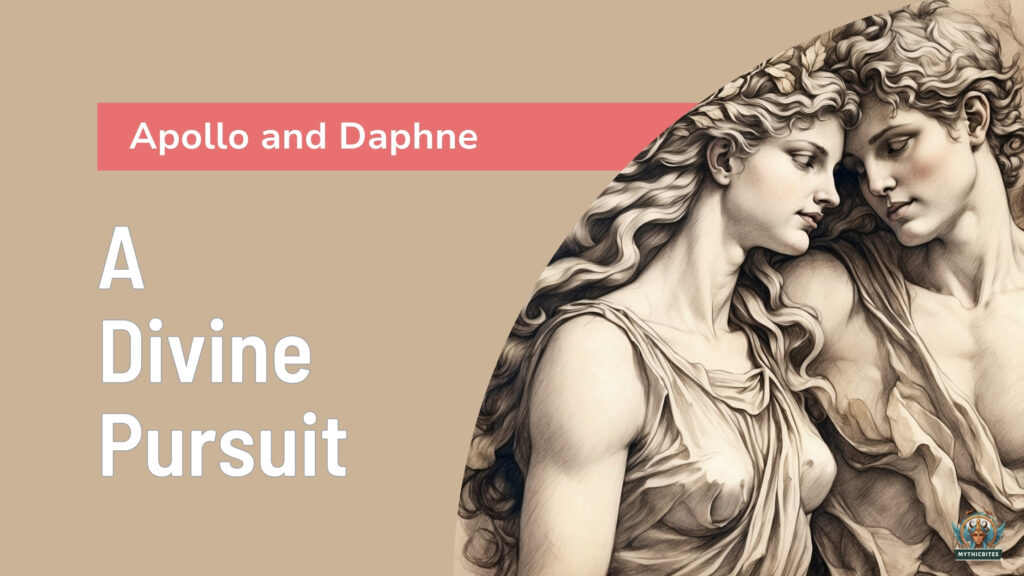Mythology love stories
Apollo and Daphne: A Divine Pursuit
In the realm of Greek mythology, the tale of Apollo and Daphne weaves a narrative of divine love and the intricate dance between desire and destiny. From Apollo’s relentless pursuit to Daphne’s metamorphosis into a laurel tree, this myth unfolds as a poignant parable of unrequited love. Nature itself becomes a silent witness to the complexities of desire, illustrating that even gods and mortals are not immune to the bittersweet symphony of the heart.
The Pursuit of Divine Love:

Apollo, the god of music, poetry, and prophecy, finds himself captivated by Daphne, a nymph blessed with beauty and an independent spirit. The pursuit of divine love takes center stage as Apollo becomes consumed by a relentless desire to win Daphne’s heart. However, the more he advances, the more she withdraws, setting the stage for a tale that transcends the divine and touches the human experience.
 The Metamorphosis into Laurel:
The Metamorphosis into Laurel:As Apollo’s pursuit intensifies, Daphne, overwhelmed by the unwanted attention, implores her father, the river god Peneus, for protection. In a moment of divine intervention, Peneus transforms Daphne into a laurel tree, her limbs becoming branches, and her feet taking root in the earth. Apollo, reaching out to embrace the object of his desire, is left with only the branches of a laurel tree in his hands. The pursuit concludes with a poignant metamorphosis, where unrequited love meets the resilience of nature.
Lessons in Unrequited Love:

The tale of Apollo and Daphne offers profound lessons in the nature of unrequited love. Despite Apollo’s divine status, he experiences the pain of rejection, highlighting that even gods are not immune to the complexities of desire. Daphne’s transformation into a laurel tree becomes a symbol of the lengths one may go to escape unwanted advances, emphasizing the importance of consent and the autonomy of the individual.

Nature as Silent Witness:
Throughout the myth, nature plays a silent yet pivotal role as a witness to the divine drama. The river god Peneus, in granting Daphne’s plea for escape, becomes an arbiter in the cosmic ballet of love and transformation. The laurel tree, born from Daphne’s metamorphosis, stands as a testament to the resilience of nature in the face of divine passion.
The myth of Apollo and Daphne transcends the boundaries of time and culture, resonating with audiences through the ages. In this divine pursuit, we find a reflection of the complexities inherent in desire and the consequences of unrequited love. Nature, with its silent wisdom, becomes the backdrop to a story that explores the delicate dance between gods and mortals, desire and destiny. As we ponder the enduring lessons within this myth, we are reminded that even in the divine realms, the heart is not exempt from the triumphs and tribulations of the human experience.

